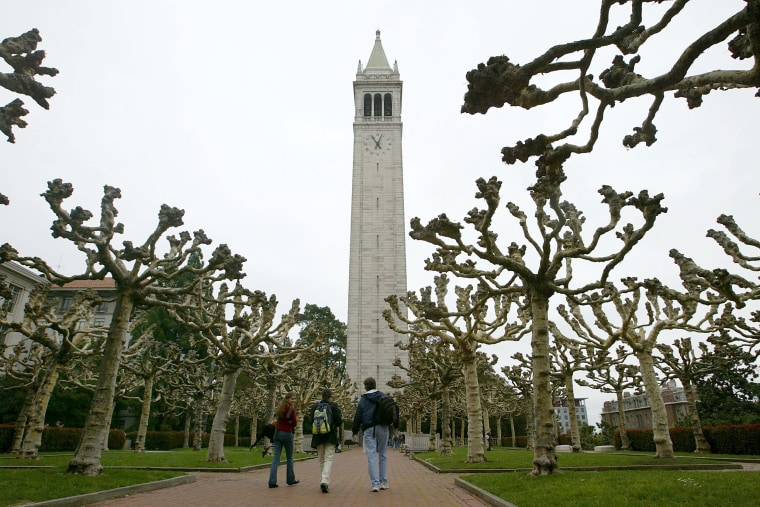A newly-formed nonprofit purportedly serving Asian Americans and a professor who studies affirmative action are suing the University of California (UC) for access to data that they say could show whether the university system illegally discriminates against Asian Americans in admissions.
The lawsuit, filed in early November in California Superior Court, accuses the university system of not complying with a California public records law by refusing data requests from the petitioners.
They are seeking data about undergraduate applicants and enrollees of the UC system, including test scores, high school and college grades, high school class rank, race and ethnicity, intended majors and final majors, among other data points.
The petition comes weeks after the conclusion of a trial in which Harvard was accused of discrimination against applicants of Asian descent. In a press release, petitioners cited the case as part of their reasoning for filing a lawsuit.
“The recent trial in Boston involving Harvard’s admissions has demonstrated real reason for concern about whether our most prestigious private universities are treating Asian-Americans fairly,” George Shen, president of the nonprofit Asian American Community Services Center, which was started in October and is one of the petitioners, said in the statement.
The other petitioner is Richard Sander, a law professor and economist at UCLA, and a proponent of the “mismatch” effect, which argues that affirmative action hurts some students by putting them in positions they are not prepared for. He alleged in court filings that the university has provided similar information to him before, and that he offered to pay for a programmer to compile the dataset.
California voters passed Proposition 209 in 1996, making it illegal for state institutions to consider race, sex or ethnicity in employment, education or contracting decisions.
In an email, a spokesperson for the UC Office of the President refuted the allegations that the school system was not complying with the records law and illegally considered race in admissions.
“UC does not consider race, ethnicity or gender in admissions decisions, or any other decisions,” Dianne Klein, press secretary for the UC Office of the President, wrote. “As to the allegation that UC is illegally denying Sander access to information, that, too is untrue.”
The university argued that the requested data is “highly customized and personal” and that “creating such a report that would sufficiently protect the privacy of applicants to the University would create an extensive burden on UC resources.”
“Moreover, the Public Records Act does not require that we create new records in response to requests,” Klein wrote.
California’s public universities are allowed to recruit diverse student bodies in ways that does not take race into account in the application process, including automatically offering admittance to a certain percentage of top public school students and developing pipeline and recruiment programs.
Sander alleged in a statement that the UC system took “good-faith steps” to comply with the law from from 1998 to 2006 but parts of the system appear to have abandoned race neutrality following 2007. The requested data could settle those questions, he said.
Asian Americans are the largest ethnic group of freshmen admitted to the UC system since 2010, according to Klein. “They also have the highest freshman admission rate,” she wrote. Seventy-three percent of applicant who identified themselves as Asian were admitted last fall compared to 62 percent of non-Hispanicwhites, 55 percent of Latinos and 49 percent of African Americans.
Universities with race-conscious admissions policies have been challenged in court in recent years. In 2016, the Supreme Court ruled 4-3 that the University of Texas’ admissions policy, which takes the race of the applicant into account, was constitutional. Elite schools have held that affirmative action can help them achieve a diverse student body, allowing for a free exchange of ideas and giving minority students pathways to leadership after college. Opponents say the programs illegal take race into account and say some schools have not adequately examined race-neutral diversification policies.
Follow NBC Asian America on Facebook, Twitter, Instagram and Tumblr.

